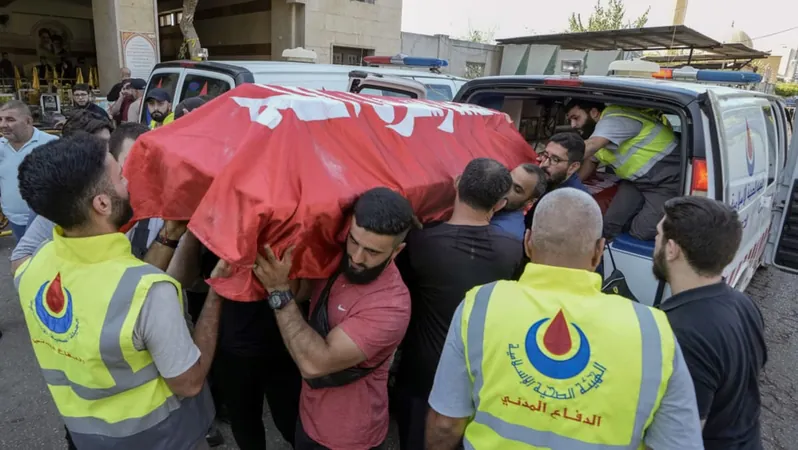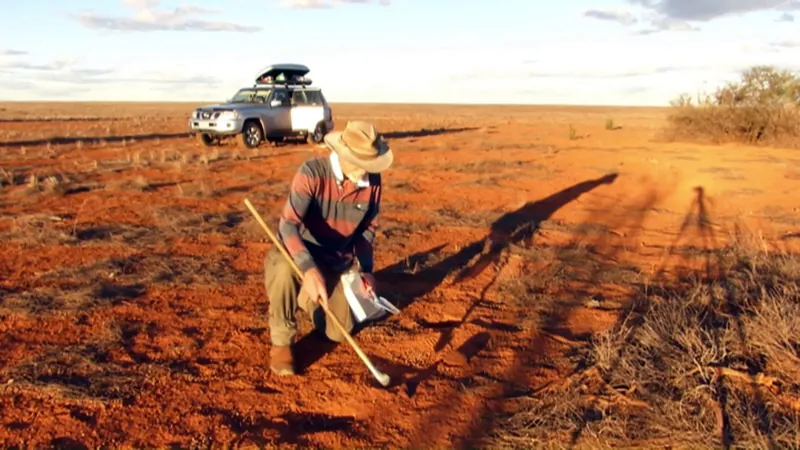
Escalating Violence: Israel Targets Hezbollah Commander in Beirut, Forces Grow Tensions in Middle East
2024-09-24
BEIRUT – In a dramatic escalation of conflict
an Israeli airstrike in Beirut killed a prominent commander of Hezbollah, Ibrahim Qubaisi, on September 24th. This military action has reignited fears of a full-scale war in the Middle East as cross-border rocket attacks intensify.
Israeli military officials confirmed that Qubaisi, who led the militant group’s missile and rocket division, was a significant target, describing him as a key figure in Hezbollah's operations backed by Iran. Following the strike, Israel's air force initiated extensive bombardments on multiple Hezbollah sites across southern Lebanon, targeting weapons depots and launch sites allegedly poised for attacking Israeli territory.
Israeli Defense Minister Yoav Gallant remarked, “Hezbollah today is not the same Hezbollah we knew a week ago.” He emphasized the impact of the recent strikes, indicating that Hezbollah's command structure and combat capacities have been significantly compromised.
The toll on Lebanon has been staggering, with Health Minister Firass Abiad reporting that Israeli strikes have resulted in at least 569 casualties and more than 1,835 injuries, including 50 children since the beginning of the bombings. As desperation mounts, the Lebanese Health Ministry registered 27,000 displaced individuals seeking refuge from the violence.
In retaliation, Hezbollah launched rockets toward Israeli military bases, targeting locations such as the Dado military base and the Atlit naval base. Sirens echoed in northern Israeli towns as tension escalated, although reports on the effectiveness of these strikes remain unclear.
The renewed offensive against Hezbollah has raised alarms about rekindling the nearly year-long conflict between Israel and Hamas in Gaza, with the potential to destabilize the entire region. President Joe Biden, addressing the UN General Assembly, underscored the importance of diplomacy in these turbulent times, stating, “Full-scale war is not in anyone's interest, and a diplomatic solution is still possible.”
As Israel pivots its attention from Gaza to the north, securing its borders has become a priority, especially as Hezbollah continues to show solidarity with Hamas, creating a volatile environment ripe for conflict.
On the ground in Beirut, the impact of airstrikes has been devastating. Reports indicate that two days of bombardments have caused additional fatalities, with the destruction displacing families who are now coping with prolonged suffering. “We felt as if we were in a war, a very difficult war,” expressed Rima Ali Chahine, recounting the struggle of families stranded for hours trying to flee the fighting.
The fear of renewed conflict looms large among the population, with memories of the catastrophic Israel-Hezbollah war in 2006 still fresh in their minds. “As long as we have a neighbor like Israel, we can’t sleep safely,” shared resident Hassan Omar, reflecting the defiance amidst chaos.
Urgent calls for diplomatic intervention have echoed through international channels, urging influential states to prevent further escalation in the region. White House national security adviser Jake Sullivan stated a pathway to de-escalation may still be feasible despite the rising tensions.
Adding to the complexity of the situation, Hezbollah faced severe losses last week due to suspected Israeli attacks disrupting their communication systems, raising questions about the group's operational capabilities moving forward.
As the conflict intensifies, the world watches closely, knowing that the stakes are high and the potential for a broader war involving regional players such as Iran and the United States looms ominously on the horizon.



 Brasil (PT)
Brasil (PT)
 Canada (EN)
Canada (EN)
 Chile (ES)
Chile (ES)
 España (ES)
España (ES)
 France (FR)
France (FR)
 Hong Kong (EN)
Hong Kong (EN)
 Italia (IT)
Italia (IT)
 日本 (JA)
日本 (JA)
 Magyarország (HU)
Magyarország (HU)
 Norge (NO)
Norge (NO)
 Polska (PL)
Polska (PL)
 Schweiz (DE)
Schweiz (DE)
 Singapore (EN)
Singapore (EN)
 Sverige (SV)
Sverige (SV)
 Suomi (FI)
Suomi (FI)
 Türkiye (TR)
Türkiye (TR)